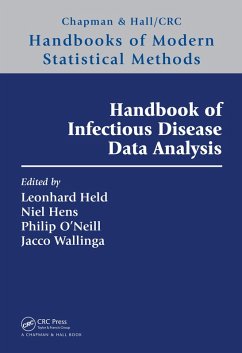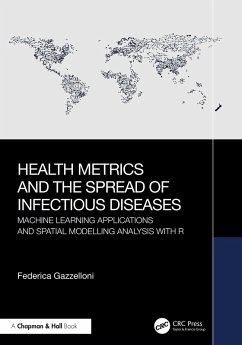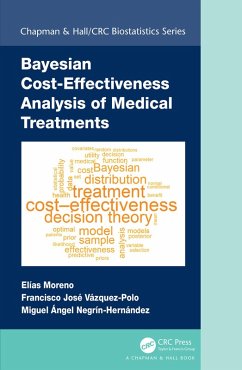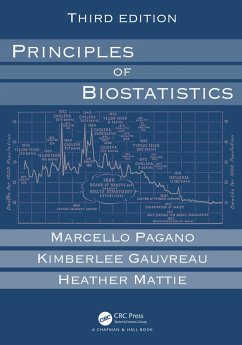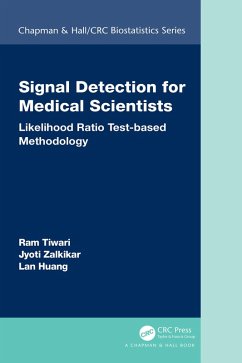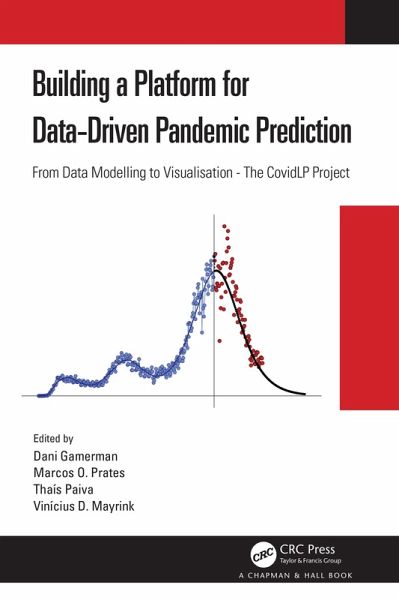
Building a Platform for Data-Driven Pandemic Prediction (eBook, PDF)
From Data Modelling to Visualisation - The CovidLP Project
Redaktion: Gamerman, Dani; Mayrink, Vinicius D.; Paiva, Thais; Prates, Marcos O.
Versandkostenfrei!
Sofort per Download lieferbar
61,95 €
inkl. MwSt.
Weitere Ausgaben:

PAYBACK Punkte
31 °P sammeln!
This book is about building platforms for pandemic prediction. It provides an overview of probabilistic prediction for pandemic modeling based on a data-driven approach. It also provides guidance on building platforms with currently available technology using tools such as R, Shiny, and interactive plotting programs.The focus is on the integration of statistics and computing tools rather than on an in-depth analysis of all possibilities on each side. Readers can follow different reading paths through the book, depending on their needs. The book is meant as a basis for further investigation of ...
This book is about building platforms for pandemic prediction. It provides an overview of probabilistic prediction for pandemic modeling based on a data-driven approach. It also provides guidance on building platforms with currently available technology using tools such as R, Shiny, and interactive plotting programs.
The focus is on the integration of statistics and computing tools rather than on an in-depth analysis of all possibilities on each side. Readers can follow different reading paths through the book, depending on their needs. The book is meant as a basis for further investigation of statistical modelling, implementation tools, monitoring aspects, and software functionalities.
Features:
The book is geared towards practitioners with an interest in the development and presentation of results in an online platform of statistical analysis of epidemiological data. The primary audience includes applied statisticians, biostatisticians, computer scientists, epidemiologists, and professionals interested in learning more about epidemic modelling in general, including the COVID-19 pandemic, and platform building.
The authors are professors at the Statistics Department at Universidade Federal de Minas Gerais. Their research records exhibit contributions applied to a number of areas of Science, including Epidemiology. Their research activities include books published with Chapman and Hall/CRC and papers in high quality journals. They have also been involved with academic management of graduate programs in Statistics and one of them is currently the President of the Brazilian Statistical Association.
The focus is on the integration of statistics and computing tools rather than on an in-depth analysis of all possibilities on each side. Readers can follow different reading paths through the book, depending on their needs. The book is meant as a basis for further investigation of statistical modelling, implementation tools, monitoring aspects, and software functionalities.
Features:
- A general but parsimonious class of models to perform statistical prediction for epidemics, using a Bayesian approach
- Implementation of automated routines to obtain daily prediction results
- How to interactively visualize the model results
- Strategies for monitoring the performance of the predictions and identifying potential issues in the results
- Discusses the many decisions required to develop and publish online platforms
- Supplemented by an R package and its specific functionalities to model epidemic outbreaks
The book is geared towards practitioners with an interest in the development and presentation of results in an online platform of statistical analysis of epidemiological data. The primary audience includes applied statisticians, biostatisticians, computer scientists, epidemiologists, and professionals interested in learning more about epidemic modelling in general, including the COVID-19 pandemic, and platform building.
The authors are professors at the Statistics Department at Universidade Federal de Minas Gerais. Their research records exhibit contributions applied to a number of areas of Science, including Epidemiology. Their research activities include books published with Chapman and Hall/CRC and papers in high quality journals. They have also been involved with academic management of graduate programs in Statistics and one of them is currently the President of the Brazilian Statistical Association.
Dieser Download kann aus rechtlichen Gründen nur mit Rechnungsadresse in A, B, BG, CY, CZ, D, DK, EW, E, FIN, F, GR, HR, H, IRL, I, LT, L, LR, M, NL, PL, P, R, S, SLO, SK ausgeliefert werden.






